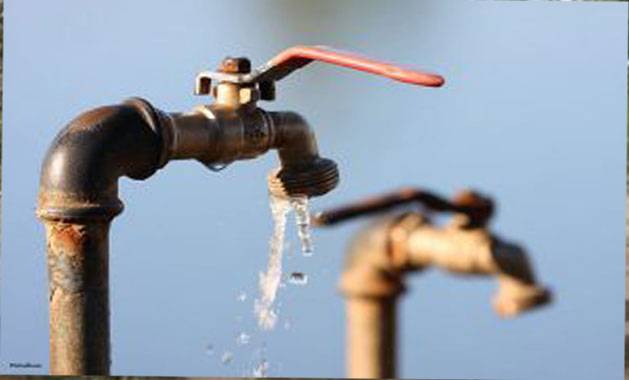JUST IN: Zinwa crippled by $2, 4 billion unpaid water bill

Mashudu Netsianda Senior
THE Zimbabwe National Water Authority (Zinwa) is owed a total of $2, 4 billion with the municipalities of Gwanda and Beitbridge owe $407 million out of a total $507 million which is owed by 92 local authorities in the country.
The money that the two councils owe Zinwa translates to 80 percent of more than $900 million water debt accrued by local authorities as at July 30, 2021.
Zinwa resorted to cutting water supplies to Gwanda and Beitbridge residents over the debt. Beitbridge Municipality owes Zinwa $198 284 024 accrued between January and July 2021 while Gwanda Municipalityhas an outstanding amount of $181 144 760.
In total, Zinwa is owed $2,4 billion by several Government departments that continue to receive portable water supply services from the parastatal albeit with many continuing to default on their payments.
Zinwa has 534 water supply stations which supply clear water amounting to 30, 8 million cubic metres and raw water amounting to 1,3 million mega litres annually.
Speaking in Parliament, the Minister of Lands, Agriculture, Fisheries, Water and Rural Resettlement Dr Anxious Masuka the debt has massively impacted negatively on the operational effectiveness and efficiency of the water utility.
“Beitbridge and Gwanda owe Zinwa $407 million out of the total $507 million owed by all the 92 municipalities in the country. These two owe 80 percent of the Zinwa debt for local authorities,” he said.
“With the souring debt of $2,4 billion against increasing demand for provision of portable water services to various consumers and escalating costs, Zinwa was left with no option but to issue notices of cessation of service to defaulting customers.”
Among the defaulters include Ministries, Government departments, agencies and various institutions.
“On a positive note, the Office of the President and Cabinet, the Ministry of Home Affairs and Cultural Heritage, the Zimbabwe Prisons and Correctional Services, the Ministry of Health and Child Care andTelOne responded positively by making payments and submitting reasonable payment plans. These institutions were, therefore, reconnected timeously,” said Dr Masuka.
“Water supply services are rendered on a self-financing basis and there is no direct funding from Government for operation or maintenance. Thus, defaulting institutions are benefiting from the fewconsumers who honour their obligations.”
The Minister commended rural centres such as Tongwe, Shambwe and Tshaswingo in Beitbridge district and Ntalale, Guyu, Manama, Ntepe, Kezi and Mbembeswana around Gwanda Town for their loyalty in term ofservicing their debts.
“However, the payments from these rural service centres cannot sustain the operations for Beitbridge and Gwanda,” said Dr Masuka.
Beitbridge made a single payment of $14,8 million in June 2020, the only payment it made between January and July 2021, leading to a cumulative debt of $198, 3 million.
For Gwanda, the debt accumulated from $ 16 million in January 2020 to $181 million in July 2021.
“The only major payment by Gwanda was a set of a stand they gave to Zinwa valued at $12 million in October 2020. Otherwise, payments are about $2 million monthly and very inadequate for the services thatthey are provided,” said Dr Masuka.
“Zinwa also supplies water to Hwange up to household level and the collection rates are over 80 percent. These resources support small centres in the areas such as Luvimbi, Jambezi, Sebungwe, and Siyabuwa.”
Similarly, in Karoi Town the collection rate is about 75 percent, which positively impacts surrounding centres such as Pote, Kasimure, Mwami, Makuti and Vuti.
“It should be noted that other local authorities such as Binga, Tsholotsho, Lupane, Gutu, Mvurwi and Chivhu are paying satisfactorily.
It must be emphasised that the tariff is uniform across the country,” said Dr Masuka.
“Beitbridge and Gwanda have chosen not to prioritise water use payments, unlike these centres. The payment rate to Zinwa for the two local authorities combined is 14 percent. Zinwa is unable to ascertain what their actual collection rates are from their users.”
Dr Masuka said the Ministry of Finance and Economic Development allocates funding to ministries to enable them to service their utility bills.
“However, the respective Ministries and Departments do not timeously remit the funds to Zinwa for water consumed. In some instances, the Ministries and Departments simply neglect to pay their obligations,” he said.
Minister Masuka said water supply has been restored to all the institutions that were disconnected during the past week after payment plans were submitted.
“All Government institutions and Departments have been reconnected against a commitment, from the Ministry of Finance and Economic Development, to pay a total of $350 million immediately,” he said.
Dr Masuka said Beitbridge Municipality has submitted a payment plan for $20 million per month and services have since been were restored.
Gwanda Municipality has submitted a payment plan for $5 million per month and supplies were also restored.
The Minister said the non-payment of bills has affected Zinwa’s capacity to deliver its mandate including the drilling of 35 000 boreholes for marginalised rural communities to support the transformative Presidential Rural Horticultural Programme and improve access to clean, safe water by these communities.
“Zinwa’s water supply services rehabilitation and expansion drive has also stalled for the additional 41 rural service centres which are targeted to be completed before end of the year,” said Dr Masuka.
He said Zinwa has recommended that it takes over the supply function of water to Gwanda and Beitbridge from source to the household, given their inability to sustainably supply water to residents.
“Alternatively, Zinwa could supply water directly to critical Government institutions in these two towns such as hospitals, border posts and security institutions to avoid disruption of essential service,” said Dr Masuka.
@mashnets










Comments